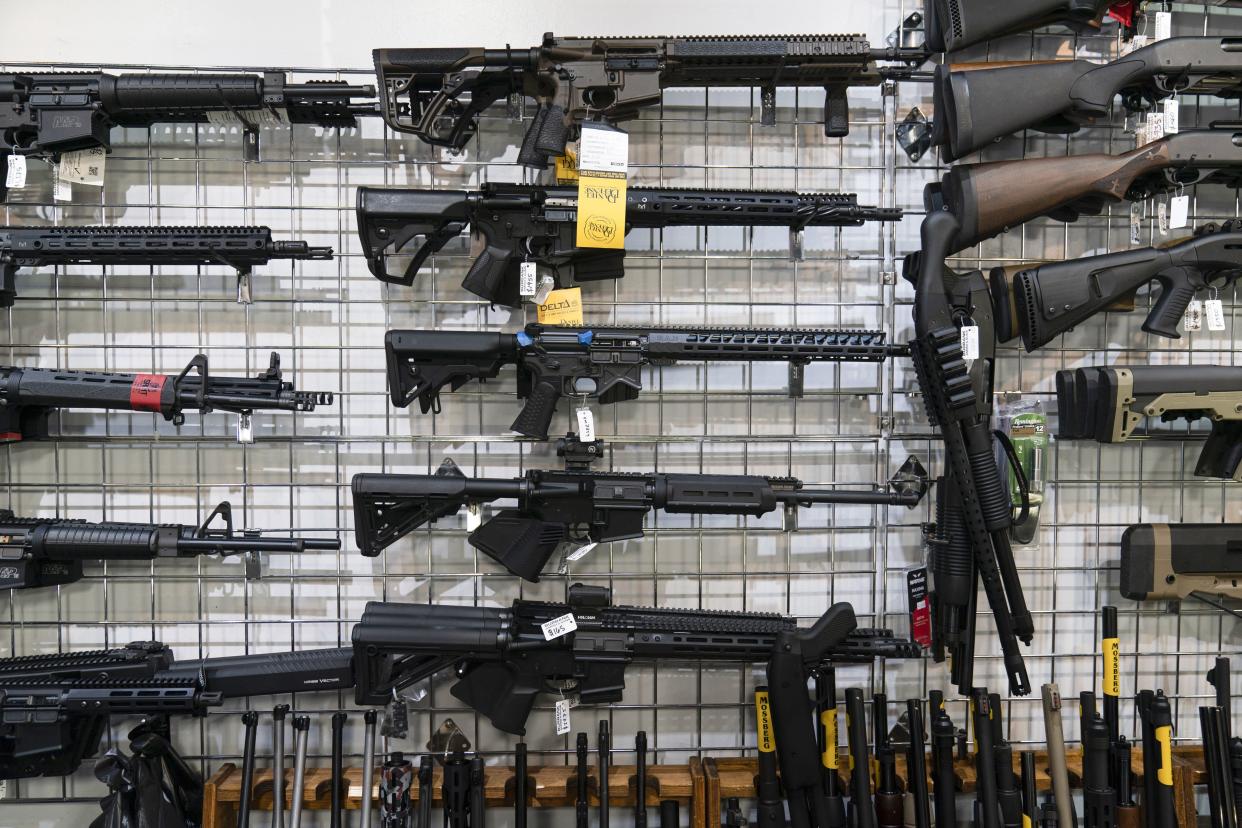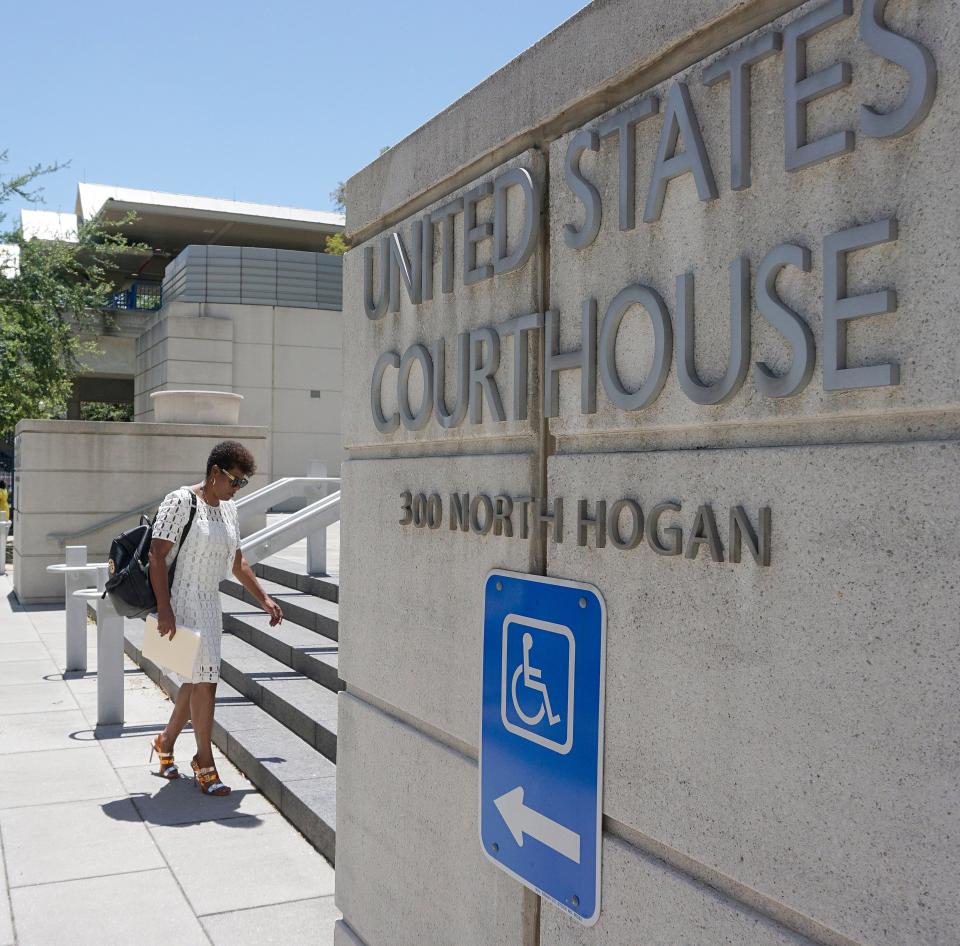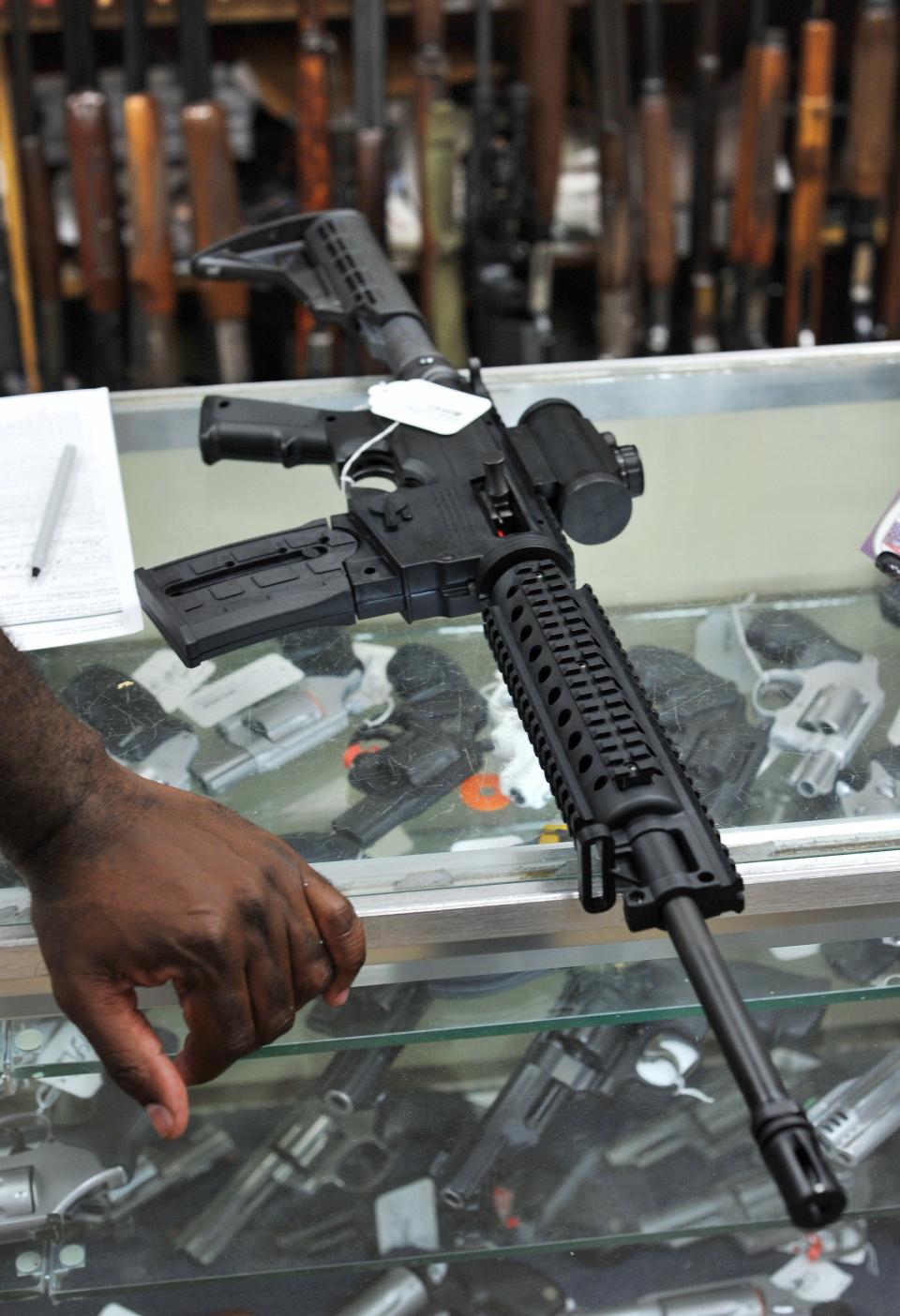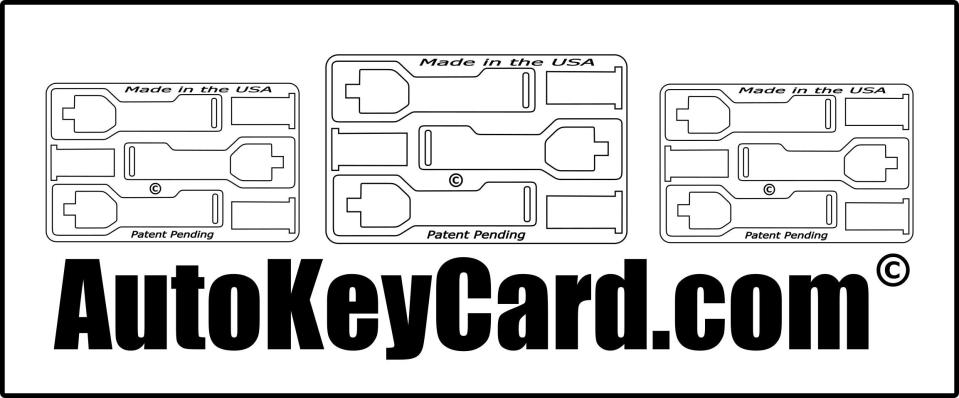'Society is pretty fragile,' client says about buying machine-gun converter from Clay firm

Customers of an Orange Park business owner charged with selling illegal machine-gun conversion equipment told a federal jury Monday about curiosity and anxieties surrounding the devices they bought online.
“Society is pretty fragile. If things were to go [toward] lawlessness, it’s better to be prepared than not prepared,” said Joel Moya, a pharmacist who lived in Orange Park when he bought four items from AutoKeyCard.com in November 2020.
“…We had the riots. We had COVID. We live in a very fragile society. It’s really frightening,” said Moya, who paid $614 for the metal items, which could collectively could be cut into a total of 12 strips that prosecutors say could each make a separate semiautomatic AR-15 rifle fire round after round as a fully automatic machine gun.
Living now in Ocala, Moya testified as a gun-crime trial continued in Jacksonville for business owner Kristopher “Justin” Ervin and Matthew Hoover, a Wisconsin gun dealer who promoted Ervin’s devices on a YouTube channel about guns that has 179,000 subscribers.

Ervin and Hoover are charged with conspiracy and illegally transferring unregistered machine-gun conversion devices in violation of the National Firearms Act of 1934, a law that limited machine guns’ availability and regulated sales of them. Hoover promoted Auto Key Card, which he described on several YouTube postings as his channel’s sponsor, and witnesses Monday said they bought Ervin’s products after seeing them on Hoover’s channel.
Ervin is also charged with a banking crime, financial structuring, and possession of unregistered conversion devices, which the law treats like unregistered machine guns.
Moya, who said a gaming interest grew into ownership of about 40 real-life firearms, described buying the items as novelties and said he did not cut them out.
Cross-examined by defense attorney Matthew LaRosiere, Moya said the devices were “nice to have but not the route I would have taken” if he had needed a machine gun. He noted that Auto Key Card items were designed for use only with AR-15s having a specific bolt carrier, the SP-1, pointing out how that limited its utility as a conversion device.

Later, Assistant U.S. Attorney David Mesrobian played a YouTube clip where Hoover described the SP-1 bolt carrier as being affordable and easy to come by.
Auto Key Card sold card-shaped strips of metal etched with lines that prosecutors say an agent at the U.S. Bureau of Alcohol, Tobacco Firearms and Explosives followed with a cutting tool to create a piece colloquially called a “lightning link” for converting a semiautomatic AR-15 into a machine gun.
Some items had stamped openings that let them be used as bottle openers or pen holders.
Jacksonville resident Darek Stennes bought a pen holder — a card wth a hole punched through it — from Auto Key Card for $42.
“As a pen holder, I could say what it was and what it could be,” said Stennes, an executive chef at a downtown club.
But Stennes, who grew up around guns and owns about 20 firearms, said he felt uneasy as he looked at the precision of the lines in the metal.

“The longer I looked at it and thought about it, the more uncomfortable I felt,” said Stennes, who joined a friend who had also bought items in hiring an attorney and contacted authorities.
Stennes eventually cut up the items to make them unusable but held onto the ruined pieces.
“I kept it just in case something came up,” he told LaRosiere. “I could prove that I actually destroyed it.”
After hearing from Ervin’s customers, attorneys and U.S. District Judge Marcia Morales Howard resumed an earlier debate about defense efforts to argue the items Ervin and Hoover promoted weren’t covered by the National Firearms Act because they were designs on metal, not parts of a firearm.
Restating a position she has held since 2021, the judge said that was a question for jurors to decide, not her.
“The jury has to decide whether the Auto Key Card falls within the statutory definition of a machine gun,” Howard said.
This article originally appeared on Florida Times-Union: As Jacksonville machine-gun trial unfolds, customers recount purchases

